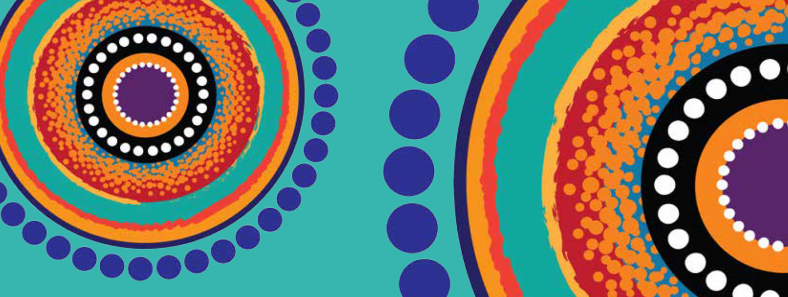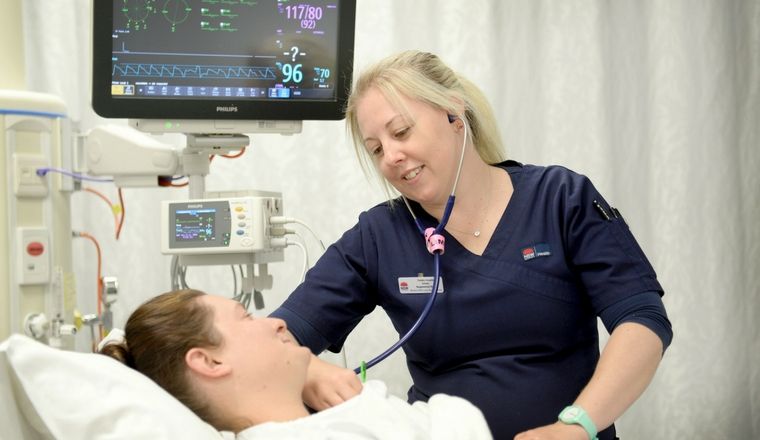Welcome to our health service. Your health and well-being is our number one priority.
We provide safe, high-quality care and will treat you as an individual, whose culture, beliefs and choices are recognised and respected.
We will work with you to include the people you want involved in your care and create the best experience and outcome for you during your stay.
We want you to know that it is Ok to ask questions and keep asking, until you understand what's happening and what you need to do. We will be honest and open in our communication. Ask for an interpreter if you need one and let us know if you have sight or hearing impairments that may affect your stay in hospital.
Staff will ask you some of the same questions several times. These might include your name, date of birth and if you have allergies. This isn't because we don't remember. It's a part of our safety checks. So, let us know if any information is incorrect. We’ll ask you, if you identify as Aboriginal or Torres Strait Islander so we can provide culturally appropriate care. Please tell us if you would like to speak with an Aboriginal health worker.
There are patient care boards next to each patient bed, to help improve communication between the health care team, patients, and their families.
Together we use the patient care board to identify your care plan, goals and preferences. Patients and their families are encouraged to write on the care board. This can include any questions or concerns you might have and important information such as special events and phone numbers. Respecting your privacy and information is important to us. So, we will only write information you're happy to share.
You will notice that staff will check on you about each hour. They will ask questions to make sure you're safe, comfortable, and have everything you need.
There are a number of things you can help us with during your stay.
Moving around is important to help prevent blood clots, but when you're unwell, you may not feel as steady or as strong as usual. There are things you can do to keep yourself safe from falling. Please call a nurse, if you need help to get out of bed or to reach something safely. If you are walking, wear well-fitting shoes or slippers that have good grip. We have non-slip socks we can give to you.
If you use a walker or walking stick, make sure you have it with you when you go for a walk. Follow the instructions from nurses or doctors about when and where it is safe for you to walk.
If you stay in the same position for a long time, you will be at risk of developing a pressure injury. Changing the way you sit or lie often can help prevent this.
Handwashing is one of the best ways to prevent the spread of germs in hospital.
Wash your hands before and after you go to the bathroom and before eating. Remind your visitors and nurses to wash their hands too. Ask your visitors not to visit you if they are unwell.
Understanding why you take medications is important. If you are not sure ask the doctor, pharmacist or nurse to explain to you what medications you're on and why you may need them.
If you notice a worrying change in your condition or have a serious concern, please talk to us or ask your family or carer to do this for you.
You can ask staff for a clinical review at any time. If you are still worried or feel your concerns have not been heard, you can make a REACH call. This call goes to a team who can provide an independent review and help with your concerns. Please tell us about any specific food requirements that we need to be aware of. Food can impact your treatment, so always check with the healthcare team before bringing food into the hospital.
All health facilities are smoke-free, and no one is permitted to smoke on the grounds. If you are a smoker staff will discuss options for nicotine replacement with you.
We have zero tolerance for violence and aggression. Our staff, visitors and patients all have the right to be cared for in places that are safe and free from violence.
The hospital has 24/7 camera surveillance to ensure everyone's safety.
When it is time for you to go home, the doctor or nurse will talk to you about how you can continue your recovery. This is a very important time for you to ask questions. We will also provide you with a written discharge summary and include your family or carer. It is important to let staff know early in your stay if you will have difficulty getting yourself home.
If you have private health insurance, you can choose to be treated as a private patient. Using your private health insurance benefit your local hospital and the community.
We always want your feedback. It's the best way for us to know how we can improve. Before or after you leave, you may be asked to complete some questions about your stay. This is also an opportunity to give us a compliment or make a complaint and remember we're here to help you.
If you have any questions or would like further information, please talk to us.
[On-screen text]
Western NSW Local Health District
Adapted from a video developed by Coonamble Health Council.

